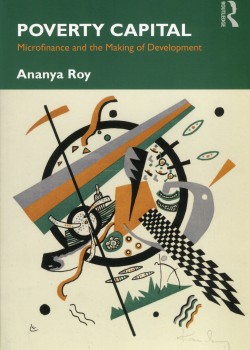
Poverty Capital
Microfinance and the Making of Development
Author : Roy, A.
Place of Publish: USA, New York and United Kingdom, London
Year: 2010
Page Numbers: 253
Acc. No: 4550
Class No: 339.46 ROY
Category: Books & Reports
Subjects: Poverty
Type of Resource: Monograph
Languages: English
ISBN: 10: 0-415-87672-9(hbk) 10: 0-415-87673-7(pbk)
This is a book about poverty but it does not study the poor and the powerless; instead it studies those who manage poverty. It sheds light on how powerful institutions control "capital," or circuits of profit and investment, as well as "truth," or authoritative knowledge about poverty. Such dominant practices are challenged by alternative paradigms of development, and the book details these as well. Using the case of microfinance, the book participates in a set of fierce debates about development - from the role of markets to the secrets of successful pro-poor institutions. Based on many years of research in Washington D.C., Bangladesh, and the Middle East, Poverty Capital also grows out of the author's undergraduate teaching to thousands of students on the subject of global poverty and inequality. The Author explores how microfinance can be conceptualized as poverty capital: a convergence of development capital and finance capital that allows collaborations where development projects yield investment returns. The author also outlines how two different development consensuses - the Washington consensus and the Bangladesh consensus, once rival ideologies - have now merged and are collaborating in such a way as to negate the original purpose of microfinance, and indeed the founding intention of the Grameen Bank: to help the poorest of the poor. Development capital and finance capital work together to make profits through “socially responsible businesses” targeted at subaltern women. Through this process, commercial banks and foundations now provide securities to high-performing MFIs.



